High Fructose Corn Syrup- The Obesity Sugar
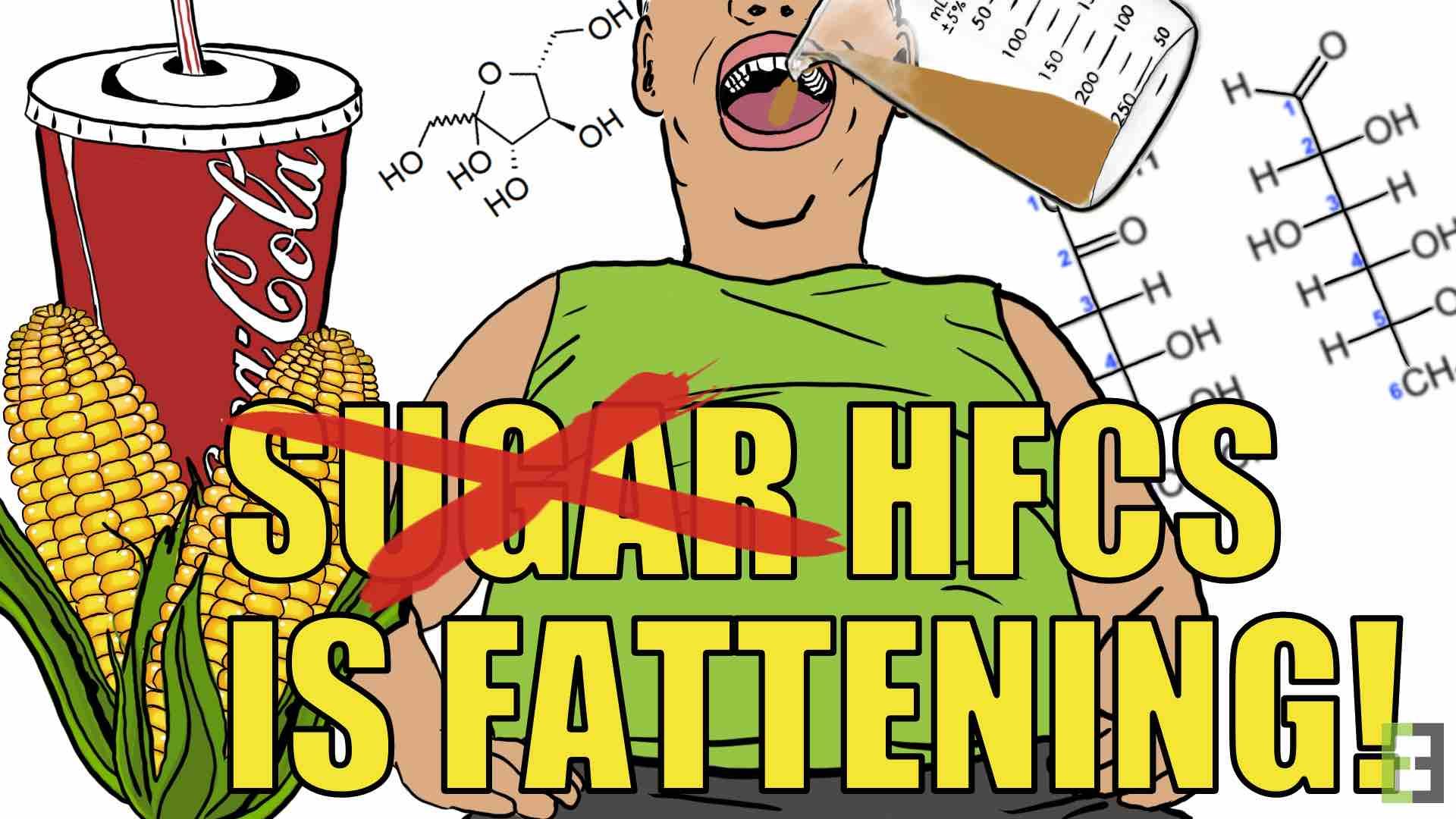
High Fructose Corn Syrup (HFCS) has become the preferred sweetener, over sucrose, in the United-States. This post will explain why the Corn-derived sugar is adding to the world obesity epidemic.
Sugars explained:
Sugars make up all the monosaccharides, disaccharides and polysaccharides found in food.
Monosaccharides, also known as simple sugars, include: fructose, glucose, galactose, ribose, among others. These molecules are in their purest form and cannot break down further.
Disaccharides, also known as double sugars, include: sucrose, lactose, maltose, among others. These compounds can break down further.
Polysaccharides, also known as complex sugars, include: starch, cellulose, among others. These compounds can break down further, and, are not sweet in taste.
It is also important to note, that, all saccharides, are, in fact, carbohydrates. Potatoes, for example, are made up of glucose, water, and fiber.
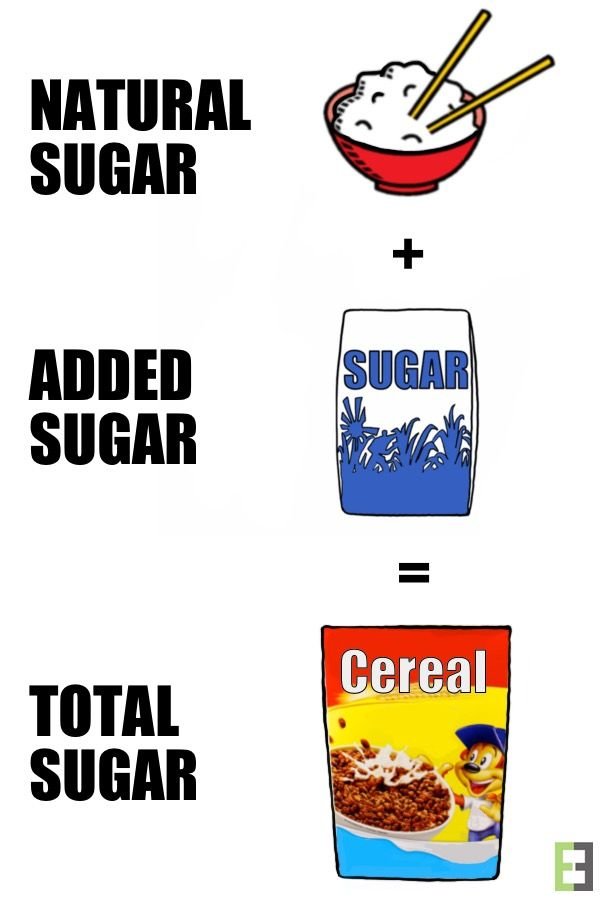
Natural Sugars:
The sugars found in potatoes, rice, fruit, etc. are not added during the processing of them and, are, thus, naturally occurring.
Added Sugars:
Any products which receive sucrose, HFCS, honey molasses, etc. as sweeteners, during the manufacturing process, contain added sugars.
Total Sugars:
The sum of the natural and added sugars.
Added sugar makes up an average of 219KCal or 16% of our total daily energy in the western diet. Forty percent of these added sugars come from High Fructose Corn Syrup.
How High Fructose Corn Syrup is made:
HFCS is derived from corn, which has to go through various processes. A quick summary of this process will follow.
Corn kernels are pulled off the cob and placed into tanks with warm water and sulfur dioxide. At This stage, the starch separates from the rest of the mixture.
The cornstarch is then mixed with hydrochloric acid and heated under pressure. This step breaks down the starch into dextrose sugars.
Finally, enzymes are added to the dextrose, converting it to fructose and enhancing its sweetness.
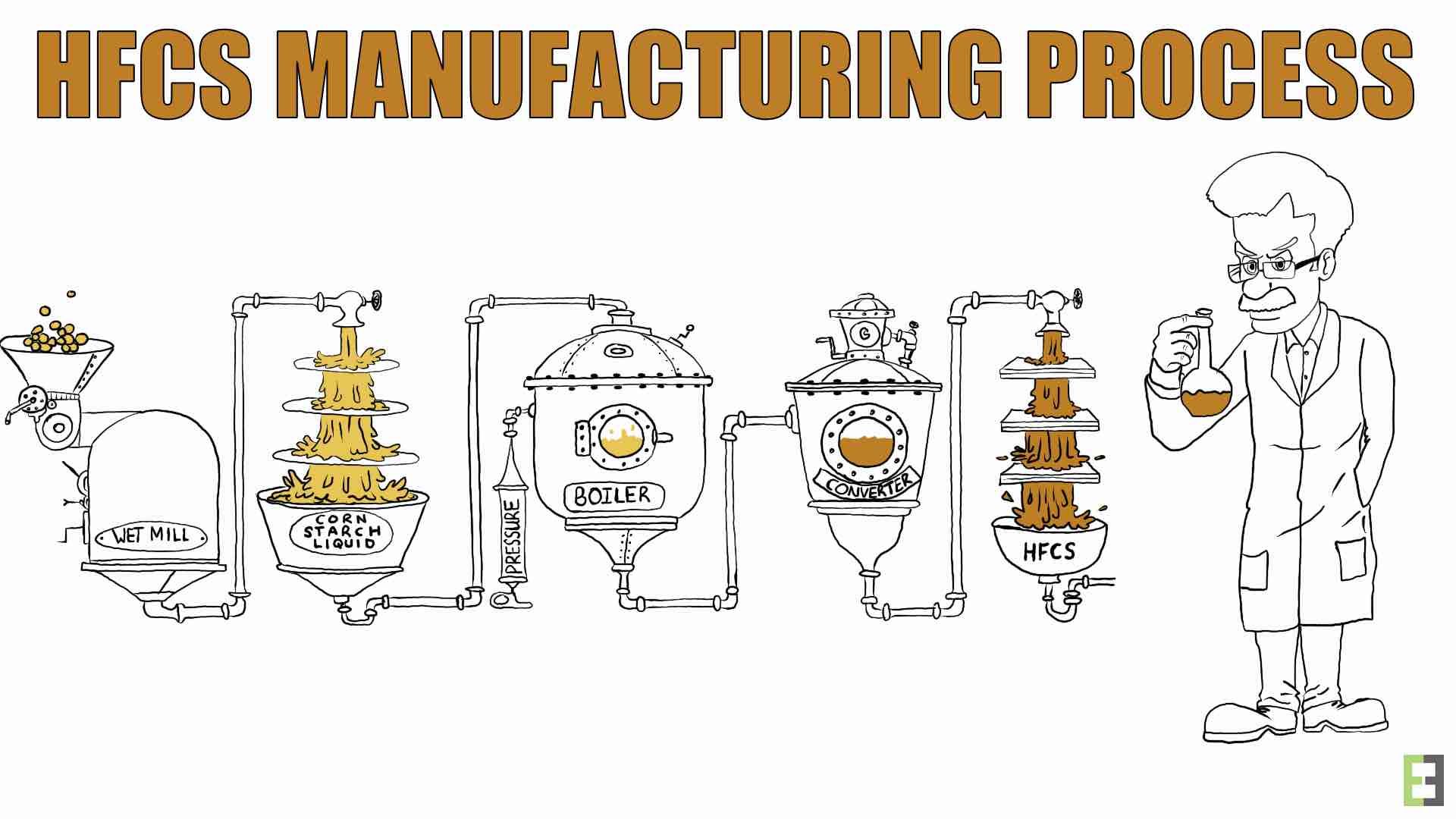
Producing HFCS is cheaper than extracting sugar from cane. This 'inexpensive' sweetener makes it attractive to food manufacturers.
A list of some of the many foods containing added HFCS:
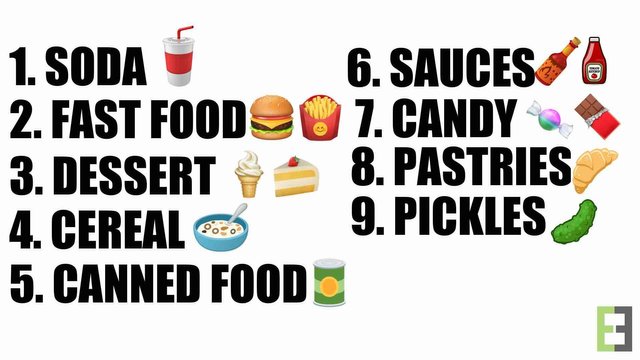
This is not an exhaustive list, nor does it claim that every product, in these groups, are manufactured with HFCS.
Now that we understand what this corn-derived sugar is, and, its extensive usage, let us look at why it is so harmful to our bodies.
How the body processes sugars:
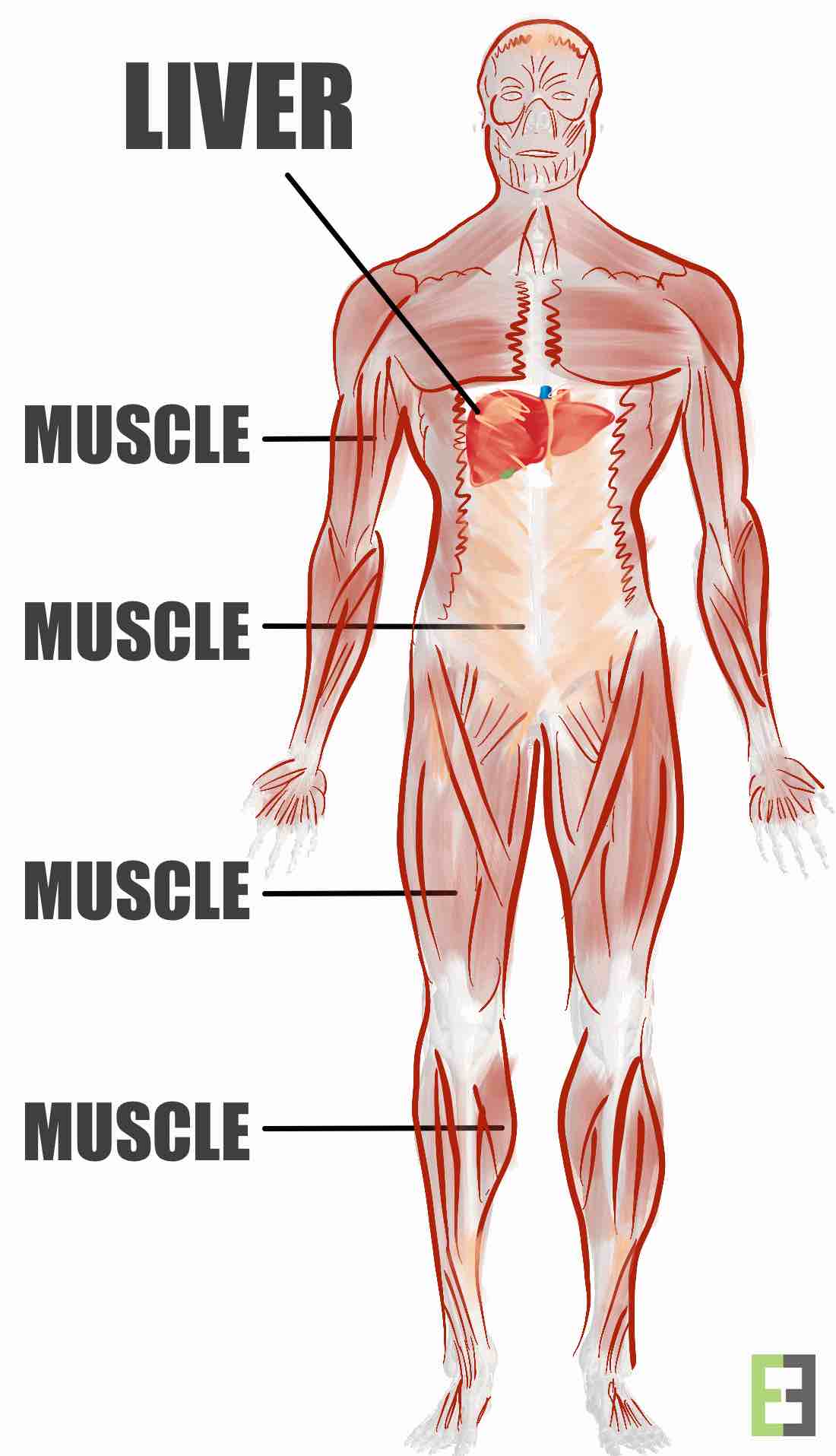
When we ingest starchy foods like rice and potatoes, the glucose inside them elicits an insulin response in the body.
Insulin opens up the cells to accept fuel inside of them.
The cells inside the liver and skeletal muscle tissue are the primary storage banks for glucose, with muscle making up the more significant portion.
Leptin, the regulator of hunger:
When our fuel stores reach their capacity, leptin gets released to the brain to signal us to stop eating.
Leptin also speeds up our metabolism, allowing for quicker utilization of the stored fuel as an energy source.
This dual action hormone, is, therefore, the principal regulator of how much and often we feed.
Some people have a genetic mutation in the OB gene, resulting in the suppression of leptin. These people never feel 'full,' causing them to overeat and become morbidly obese.
How does HFCS metabolism differ?
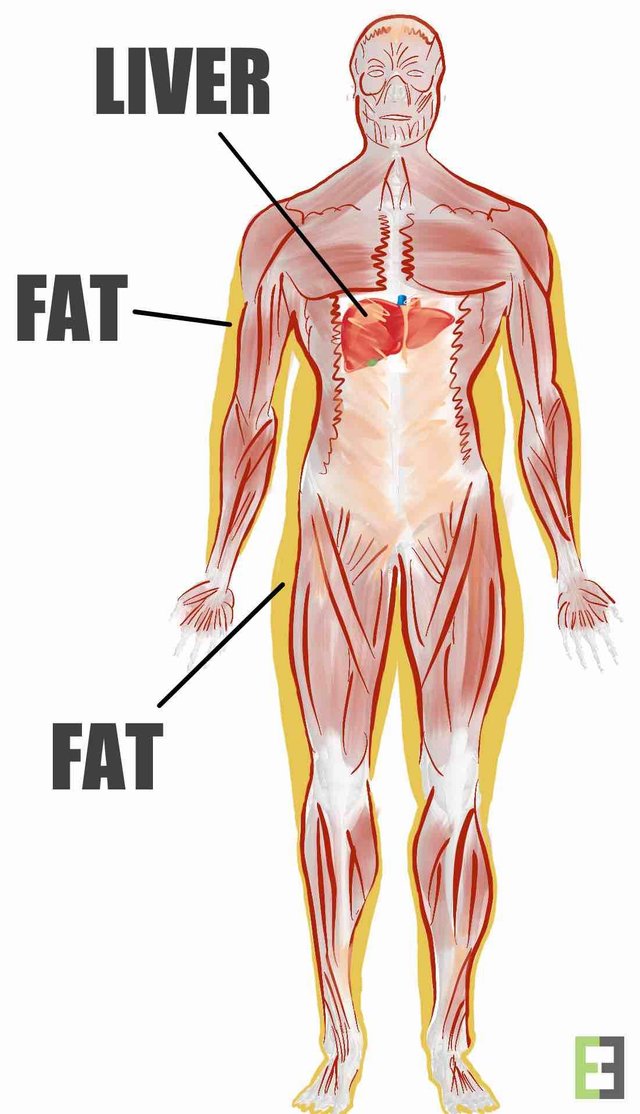
Unlike glucose metabolism, fructose does not elicit much of an insulin response. Without the presence of insulin, skeletal muscle finds it challenging to accept sugar in its cells.
The inability for fructose to enter cells means that blood sugar levels will increase.
The body defends itself from hyperglycemia (high blood sugar) by shoving all the sugar into fat cells.
Fat is the only place which will accept excess sugar.
HFCS and Leptin:
Due to the direct association that leptin has with insulin, this hunger-regulating hormone does not get secreted during HFCS ingestion.
Consuming calories, without the feeling of satiety, is a big problem. This issue mimics that of the people with the mutated OB gene, as discussed earlier.
Conclusion:
High Fructose Corn Syrup is a sugar which is adding to the obesity epidemic. The bodies inability to process HFCS like other sugars makes it unsafe for human consumption.
It's no surprise that this 'man-made' sugar is unhealthier than the real thing. It is also no shock, that, food manufacturers are more interested in lining their pockets than preserving our health.
What are your thoughts? I would love to hear.
Follow me @exercisinghealth
Bibliography:
[1[https://www.ncbi.nlm.nih.gov/pubmed/15051594
[2]https://www.ncbi.nlm.nih.gov/pubmed/17212793
[3]https://en.wikipedia.org/wiki/Carbohydrate
[4]https://www.healthline.com/nutrition/20-foods-with-high-fructose-corn-syrup
[5]http://www.madehow.com/Volume-4/Corn-Syrup.html
- All images were created by @exercisinghealth. The cereal box was taken off google images and manipulated.
WoW, an excellent article! UpVoted and referred to. ;)
"It is also no shock, that, food manufacturers are more interested in lining their pockets than preserving our health." Preserving health is not one of their (measurable) strategic goals.
Any correlation between major global food producers and medico/pharma corps?
Thank you for your Kind comments!
Yes, you can research Ancel Keys, he was a scientist who blamed Cholesterol as the 'heart killer.' Turns out, he manipulated the study to favor sugar and margarine manufacturers. Cholesterol Medication (Statins) also happen to be the best selling pharmaceutical now. Im sure you can see the correlation here. You can read this article, it will shed some more light on the matter https://www.nytimes.com/2016/09/13/well/eat/how-the-sugar-industry-shifted-blame-to-fat.html
Sure, this correlation only reveals a familiar pattern, which we constantly experience in various fields (and industries). Few days ago I read an excellent article from my former university professor explaining details of current 'neoliberal predatory capitalism' (unfortunately not in English). Great explanation with interesting patterns descriptions.
Thanks for info and link!
One in return, though I'm sure you've already seen dr. Lustig's famous lecture: 'Sugar - The bitter Truth - very informative. Or a little shorter interview with him: Type 2 Diabetes is a Processed Food Disease. I love his lectures and work.
Added you on my 'following' list, have to check your other posts. ;)
Thanks for your support!
Yes, we see can see this patterns in all industries. My father always says, "follow the money trail, and you will find the truth." A sad, but, accurate way of viewing things.
I am familiar with Dr. Lustig’s work. He has done a really good job spreading the ‘good word’ on the internet. We definitely need more guys like him in this world.
Sucrose isn't really any better. The issue is purely with fructose. The body processes HFCS just fine, I've written on this topic in the past as well. The health issues revolve around fructose. The compositional difference between sucrose (table sugar) and HFCS is only 5% fructose. It's this extra fructose that is the issue, however it should be noted that use of sucrose in stead of HFCS is not an acceptable alternative.
You are 100% correct. I Singled out HFCS because of its widespread use and the fact that many people are not aware of this sugars existence.
I should have clarified, however, that, sucrose is by no means a lesser evil and should also be avoided like the plague.
Thank you for bringing this fact to light as well as your continued support.
Of course, thank you for your hard work.
This was such a great read! I ate a very sad standard american diet for the first couple of decades and dealt with (morbid) obesity for most of my life. My mother, the meal preparer, wanted us to be healthy, so she followed the
"healthy"fad diet, low-fat. Which just means more sugars. A child of the 90s, I probably ate so much food dye and HFCS that my insides are partially fruit-by-the-foot, so I was always hungry, so my caloric intake was way too much just to stay feeling full (or awake from the inevitable crash after my body burned through the sugar). I cook for my partner whose body does not manage fructose well and this helps clarify a bit further as to the "why".Fortunately, I have always been active and had a decent protein intake so I have been saying that I was doing a "dirty bulk" for my first quarter century and now I'm finally doing my cutting phase haha. Now eating a higher fat and plant ratio, I can feel satisfied on the appropriate amount of calories my body needs and with a reasonable calorie deficit, my body is eating up my excess fat nicely. I am likely going to be sharing my journey, on a one year delay, to show people what the weekly commitment looks like for improving body composition and health. The change in my belly fat has been unreal.
Thanks for always providing well-referenced health content, a lot of pseudoscience floating around in nutrition.
It is heartwarming and inspiring to hear about your progress. So many people lack the courage to change their diets, especially when they have lived a certain way for a long time. You must post about the journey you are currently on. I think your testimonials will help a lot of people gain the strength to embark on the same path. I would certainly enjoy reading your story.
It sounds to me that you are following a more ancestral type diet? If so, you should take a listen to the Robb Wolf Podcast. He is an authority in the nutrition space and has been extremely valuable in expanding my knowledge on nutrition.
Thank you for your kind words and time. I hope to continue adding well researched, health-related, information to the steemit community.
I appreciate the encouragement. It took a bit to get to this point but I haven't been weighing or measuring myself, as I was getting too impatient with watching my water weight go up and down. I started a dedicated approach march 1st of last year and I think I will just run it parallel and use the pictures/experiences I have been collecting to share a story. I figured it would be motivating to show the "after"(I won't be finished, though!) with the before and then when I finish with that year, I can show yet another years progress out! Thanks for the returned inspiration!! :)
And I am actually following a lower carb, high healthy fats, as much plant based as I can. I just recently started cutting out dairy, as cheese got me through some serious carb withdrawals when I started haha.
amazing post and you explained it so clearly from the bottom of it. at first i said ok i don't eat products with HFCS ( i saw the cereal photo) then i was reading i saw the list :P
Ha ha ha, I was surprised by the list too, trust me :) It really pays us to read the ingredient labels on the products we consume.
Thank you for your words of encouragement. I'm glad you enjoyed the post!
Really informative post @exercisinghealth. Most popular foods have HFCS, makes me wonder how unhealthy humanity will turn out in future.
Things are looking a bit grim for us right now. Non-communicable diseases are on a consistent uptrend. All this illness is directly related to our lifestyle.
Fortunately, social media has given us a voice. We can now make a more significant impact by educating people through this medium.
I hope that with the collective effort from people who want to better humanities health, things will turn out okay In the end. A bit of luck won't hurt either ;)
Thanks for your comment.
Great post, thank you for sharing . I can understand what you mean about companies ,but at the end of the day is up to us to take care of our own health.
You are right. We all need to take the initiative to improve our own health.
The problem I have is with the food companies who’s target market are kids. They advertise with cool cartoon characters and provide complementary toys to them. The ingredients in their products, however, set the poor children up for life long health problems.
Many of these foods are also designed with addictive qualities.
An obese person, for example, knows that a poor diet is the cause of their weight gain...
Why don’t they just fix it then? It’s a simple change of diet.
Addiction is a struggle we all have to deal with in some way. Just like cigarette boxes must contain the disclaimer that the substances inside them are addictive and harmful, so too should food products have similar labels put on them.
This can only be prevented by educating our children form a very young age.
Hello, I am new blueskymaster, I like your work, give you a lot of praise
Hi. I've checked some of your posts and I thought to ask you - I'd love to hear (read) your opinion on my my NewYear's resolution article from your perspective.
Thanks.
I have commented on your post.... check it out.
Thanks.
good